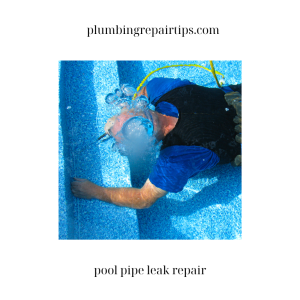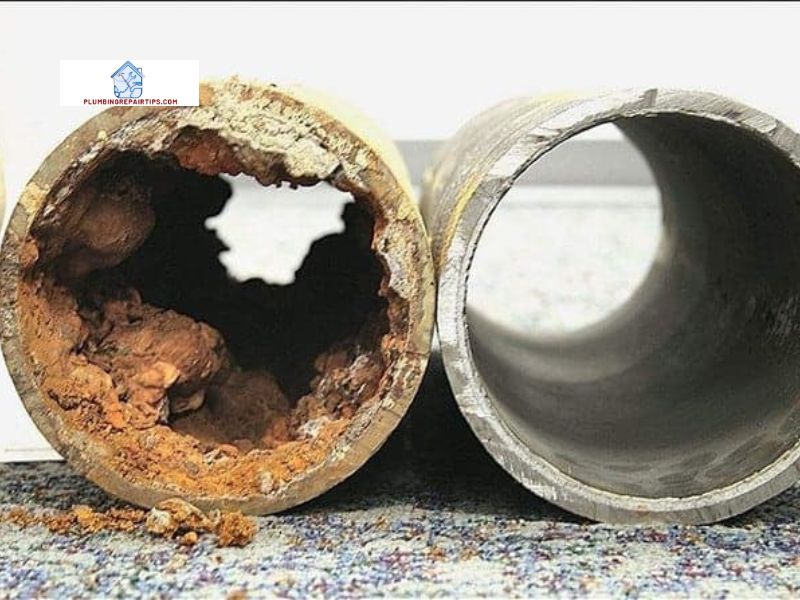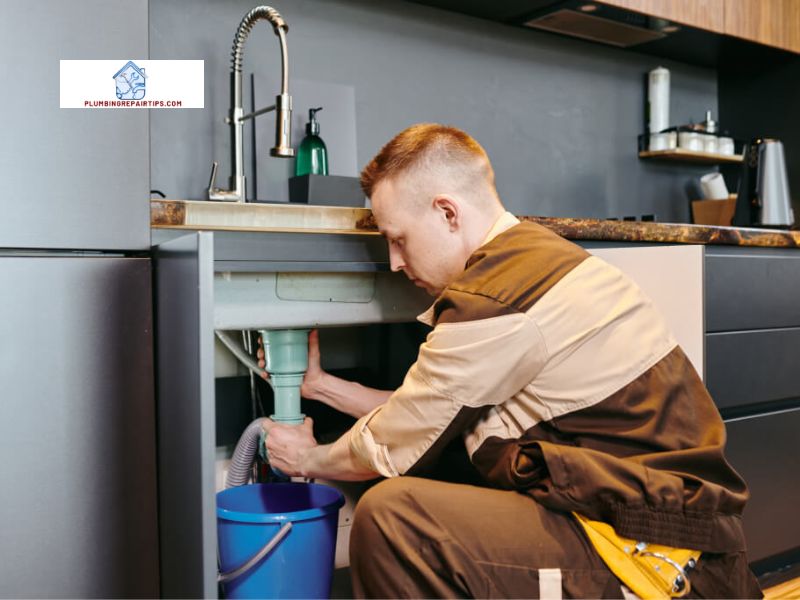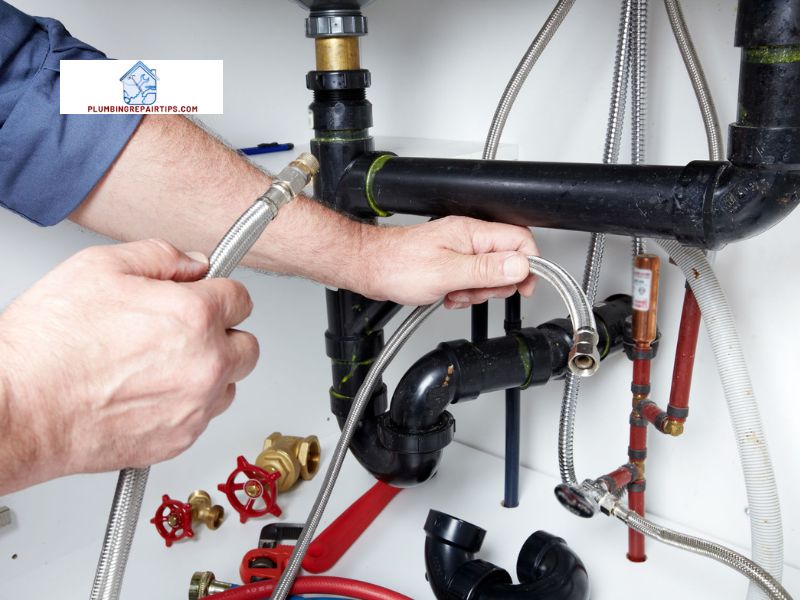Water is an essential resource for our everyday lives, but have you ever considered the quality of the water flowing through your pipes? Over time, water pipes can develop rust, posing a significant risk to both the quality of your water and your overall health. In this article, plumbingrepairtips.com will explore the importance of addressing water pipe rust and the impact it can have on your water supply and well-being.
A. Importance of addressing water pipe rust
Water pipe rust is not a problem to be taken lightly. Rust particles can contaminate your water, leading to a myriad of issues. From discoloration to unpleasant odors and tastes, rust can diminish the quality of your drinking water, affecting everything from cooking to personal hygiene.
Moreover, the presence of rust in your water pipes can also lead to the deterioration of your plumbing system. The accumulation of rust can cause blockages, leaks, and even pipe bursts, resulting in costly repairs and potential water damage to your property. By addressing water pipe rust promptly, you can prevent these costly and inconvenient plumbing issues.
B. Impact of water pipe rust on water quality and health
When rust enters your water supply, it can introduce harmful contaminants into your drinking water. These contaminants may include heavy metals like iron, manganese, or lead, which can have detrimental effects on your health. Ingesting or inhaling these contaminants over time can lead to various health problems, such as gastrointestinal issues, organ damage, or even neurological disorders.
Additionally, rust particles can also harbor bacteria and other microorganisms, further compromising the safety of your water. These microorganisms can cause illnesses such as gastroenteritis or respiratory infections. Thus, addressing water pipe rust is crucial not only to preserve water quality but also to safeguard your health and the health of your loved ones.
Now that we understand the importance of water pipe rust prevention and its impact on water quality and health, let’s delve deeper into the causes and signs of water pipe rust in Section
Understanding Water Pipe Rust
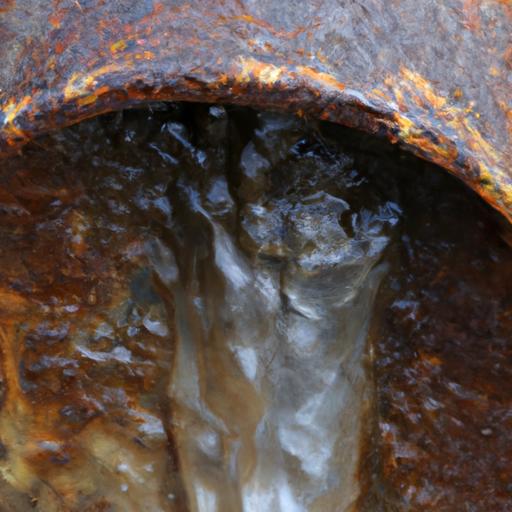
Water pipe rust is a common problem that occurs when iron pipes, commonly used in plumbing systems, corrode over time. Understanding the causes of water pipe rust is crucial in addressing and preventing this issue.
A. Definition and causes of water pipe rust
Water pipe rust, also known as corrosion, is the process by which iron pipes deteriorate due to chemical reactions with elements in the water or the surrounding environment. The primary cause of water pipe rust is the presence of oxygen and moisture, which initiate the corrosion process.
In addition to oxygen and moisture, other factors contribute to the occurrence of water pipe rust.
B. Factors contributing to the occurrence of water pipe rust
- Water pH: Acidic or alkaline water can accelerate the corrosion of pipes. Low pH levels (acidic water) can erode the protective layer on the pipes, while high pH levels (alkaline water) can cause mineral deposits that promote corrosion.
- Water temperature: Higher water temperatures can increase the rate of corrosion. Hot water causes the metal to expand and contract, making pipes more susceptible to damage.
- Water chemistry: The presence of certain minerals, such as iron or manganese, in the water can accelerate rust formation. Additionally, the concentration of chloride ions in the water can also contribute to pipe corrosion.
- Pipe material and age: Older pipes made of iron or galvanized steel are more prone to rust compared to newer pipes made of materials such as copper or PVC. The age of the pipes can also affect their structural integrity.
C. Common signs of water pipe rust
Detecting water pipe rust early is essential to prevent further damage and ensure the quality of your water. Look out for these common signs of water pipe rust:
- Discolored water: Rust particles can cause the water to appear yellow, brown, or reddish. If you notice a change in the color of your water, especially when you first turn on the tap, it may indicate the presence of rust in your pipes.
- Metallic taste or odor: Rust-contaminated water may have a metallic taste or odor. If your water tastes or smells unusual, it could be a sign of rust in your pipes.
- Low water pressure: The accumulation of rust and debris can restrict the flow of water, leading to reduced water pressure in your faucets and showerheads.
- Leaky pipes: Rust can weaken the integrity of pipes over time, resulting in leaks or visible signs of water damage.
By understanding the definition, causes, and signs of water pipe rust, we can now explore the effects of this issue on water quality and health in Section
Section III: Effects of Water Pipe Rust
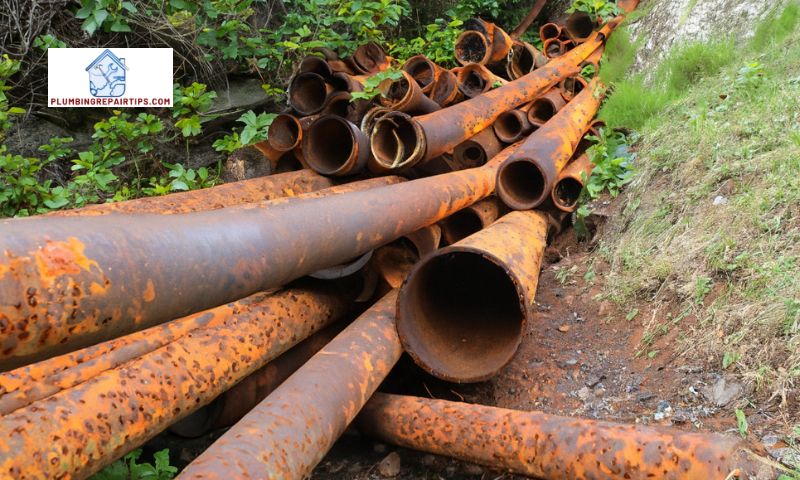
Water pipe rust can have far-reaching consequences that extend beyond just the appearance and taste of your water. In this section, we will explore the various effects of water pipe rust, including its impact on water quality, potential health risks, and its implications for the functionality of your plumbing system.
A. Degradation of water quality
When rust accumulates in your water pipes, it can lead to a significant degradation in water quality. This is evident through the presence of discolored water, often appearing brown or orange due to the iron oxide particles present in rust. The discoloration not only affects the aesthetics of your water but also makes it unsuitable for various household tasks, such as cooking, laundry, or even bathing.
Furthermore, rust can also contribute to the development of unpleasant odors and tastes in your water. The metallic or earthy taste caused by rust particles can make it unappealing to consume, leading to a reluctance to drink an adequate amount of water, which is essential for maintaining good health and hydration.
B. Potential health risks associated with rust-contaminated water
Rust-contaminated water poses potential health risks due to the presence of various harmful substances. For instance, iron particles from rust can cause gastrointestinal issues, including stomach cramps, diarrhea, and nausea, when ingested in high concentrations. Prolonged exposure to elevated iron levels in water can also lead to iron overload in the body, which may have adverse effects on organ function.
Moreover, rust can act as a carrier for other contaminants, such as lead or manganese, which are known to be toxic to the human body. Lead, in particular, can have severe health implications, especially for young children and pregnant women, as it can impair neurological development and cause developmental delays.
C. Impact on plumbing system functionality
Water pipe rust not only affects the quality of your water but also compromises the functionality of your plumbing system. As rust accumulates over time, it can lead to blockages in your pipes, reducing water flow and pressure. This can result in decreased performance of faucets, showers, and other water fixtures throughout your home.
Additionally, the corrosion caused by rust weakens the structural integrity of your pipes, increasing the risk of leaks and pipe bursts. The constant presence of moisture from these leaks can also promote the growth of mold and mildew, which can further deteriorate your plumbing system and pose health hazards.
In the next section, we will discuss preventative measures and maintenance techniques that can help mitigate the effects of water pipe rust and protect both your water quality and plumbing system functionality.
Section V: Repair and Treatment of Water Pipe Rust
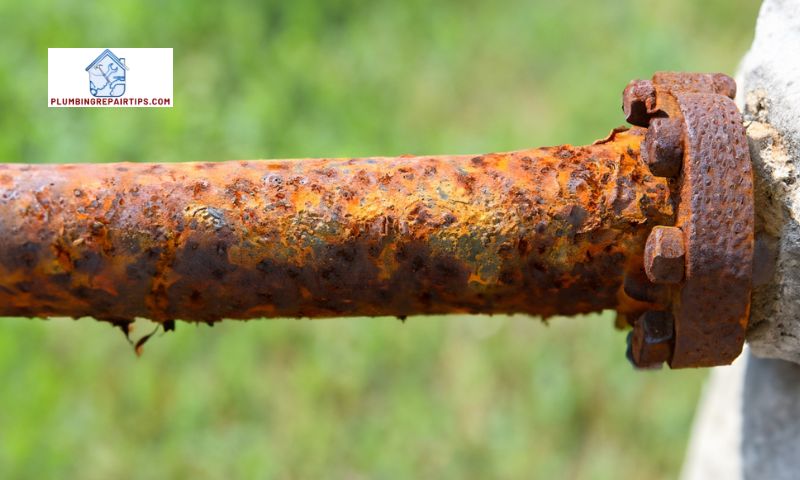
Water pipe rust can be a persistent problem, but there are effective methods for addressing and treating it. In this section, we will explore the necessary steps to identify rust-related issues in water pipes, the methods for rust removal and pipe restoration, and when it’s appropriate to seek professional services for extensive water pipe rust treatment.
A. Identifying rust-related issues in water pipes
To effectively address water pipe rust, it’s crucial to identify any rust-related issues in your plumbing system. Keep an eye out for signs such as discolored water, a metallic taste or smell, or visible rust flakes in your water supply. Additionally, low water pressure, frequent pipe leaks, or unusual noises in your pipes can also indicate the presence of rust and corrosion.
If you suspect rust in your water pipes, you can perform a simple test by filling a clear glass with tap water and letting it sit for a few minutes. If you notice sediment settling at the bottom of the glass or a rust-colored residue, it’s likely that rust is present in your pipes.
B. Effective methods for rust removal and pipe restoration
Once you have identified rust in your water pipes, it’s essential to take immediate action to remove the rust and restore your plumbing system. There are several effective methods for rust removal, such as using a rust converter or chemical descaler. These products work by dissolving the rust and preventing further corrosion.
After removing the rust, it’s crucial to restore the affected pipes to their original condition. This may involve patching small areas of corrosion or replacing severely damaged sections. It’s important to consult with a professional plumber to determine the best course of action based on the extent of the rust damage and the condition of your pipes.
C. Hiring professional services for extensive water pipe rust treatment
In some cases, water pipe rust may be extensive or difficult to address on your own. When faced with severe rust issues or if you are unsure about the proper treatment methods, it’s recommended to seek the assistance of professional plumbing services. Experienced plumbers have the expertise and specialized equipment to thoroughly assess your plumbing system, identify rust-related issues, and provide comprehensive rust treatment and pipe restoration solutions.
By hiring professional services, you can ensure that the rust problem is effectively addressed, minimizing the risk of further damage to your plumbing system and ensuring the long-term integrity of your water supply.
Now that we have explored the repair and treatment options for water pipe rust, let’s move on to the conclusion in Section VI to summarize the importance of addressing water pipe rust and emphasize the need for proactive measures.
Conclusion
In conclusion, addressing water pipe rust is of utmost importance to ensure the quality of your water and safeguard your health. The impact of rust on water pipes goes beyond mere discoloration or unpleasant taste – it can lead to a host of plumbing issues and introduce harmful contaminants into your drinking water.
By implementing preventative measures and adopting proper maintenance techniques, you can minimize the risk of water pipe rust. Regular inspection and monitoring of your water pipes allow you to identify early signs of rust and take necessary action. Implementing corrosion control measures such as using protective coatings or installing sacrificial anodes can significantly reduce the occurrence of rust.
Flushing and cleaning procedures are also effective in reducing rust accumulation. Flushing your pipes regularly helps remove sediments and rust particles, ensuring the longevity of your plumbing system. Additionally, periodic cleaning of your water pipes can help eliminate existing rust and prevent further corrosion.
Remember, prevention is always better than cure. Taking proactive steps to address water pipe rust not only preserves the quality of your water but also protects your plumbing system and promotes good health. Trust the experts to handle extensive water pipe rust treatment, as they possess the knowledge and tools to restore your pipes effectively.
At plumbingrepairtips.com, we understand the significance of maintaining water quality and health. Our team of professionals is dedicated to providing valuable insights, tips, and services to help you tackle water pipe rust effectively. Don’t let rust compromise your water supply and well-being – take action today and ensure a clean and healthy water system for you and your loved ones.
Remember, when it comes to water pipe rust, prevention and maintenance are key. Act now to protect your water, your health, and your home.
